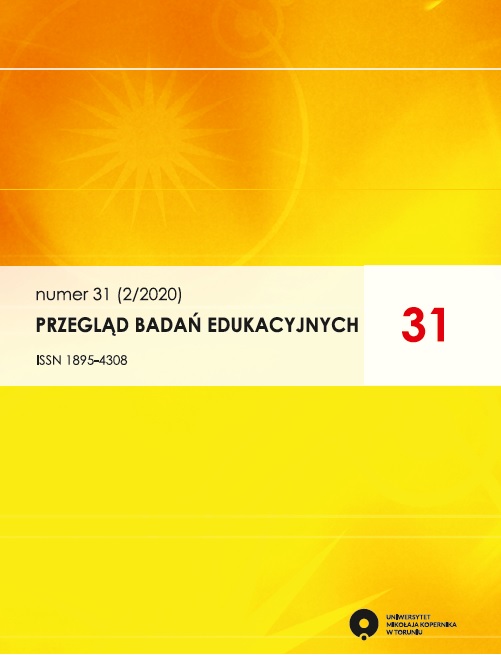Differentiation of Needs of Educators from Intercultural Perspective – with the Use of the Questionnaire of Educational Needs (QEN)
DOI:
https://doi.org/10.12775/PBE.2020.027Keywords
teacher, need (hunger), educational transactional analysis, individualismAbstract
In this paper, the research presents findings that constitute an attempt to answer the research question relating to the way in which the educational needs of teachers are differentiated.
Teachers belong to communities representing different cultural trends from the viewpoint of individualism. The research was conducted with the aid of QEN in the following four countries: Guatemala, Poland, Ukraine, and Great Britain (N=441). The resulting data was analysed by means of the Kruskal-Wallis H test for independent samples with reference to the following three needs: recognition, structure and stimulation. The research findings indicate that the cultural dimension the educators function in differentiates their educational needs.
Nevertheless, the source of this would be worth searching for in other areas than the level of social individualism. The findings acquired may serve the planning of educational activities, while also guidelines to strengthen the intercultural dialogue.
References
Berne, E. (1966). Principles of Group Treatment. New York: Grove Press.
Bourdieu, P. & Passeron, J.C. (1990). Reproduction in Education, Society and Culture. London: Sage Publications.
Hofstede, G., Hofstede, G.J., & Minkov, M. (2010). Cultures and Organizations: Software of the Mind. New York: McGraw Hill Professional.
Nikitorowicz, J. (2005). Kreowanie tożsamości dziecka [Creating a Child’s Identity]. Gdańsk: GWP.
Downloads
Published
How to Cite
Issue
Section
Stats
Number of views and downloads: 429
Number of citations: 0



